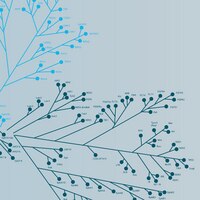Ultraviolet B-induced phosphorylation of histone H3 at serine 28 is mediated by MSK1.
Zhong, S, et al.
J. Biol. Chem., 276: 33213-9 (2001)
2001
Mostrar resumen
N-terminal tail phosphorylation of histone H3 plays an important role in gene expression, chromatin remodeling, and chromosome condensation. Phosphorylation of histone H3 at serine 10 was shown to be mediated by RSK2, mitogen- and stress-activated protein kinase-1 (MSK1), and mitogen-activated protein kinases depending on the specific stimulation or stress. Our previous study showed that mitogen-activated protein kinases MAP kinases are involved in ultraviolet B-induced phosphorylation of histone H3 at serine 28 (Zhong, S., Zhong, Z., Jansen, J., Goto, H., Inagaki, M., and Dong, Z., J. Biol. Chem. 276, 12932-12937). However, downstream effectors of MAP kinases remain to be identified. Here, we report that H89, a selective inhibitor of the nucleosomal response, totally inhibits ultraviolet B-induced phosphorylation of histone H3 at serine 28. H89 blocks MSK1 activity but does not inhibit ultraviolet B-induced activation of MAP kinases p70/85(S6K), p90(RSK), Akt, and protein kinase A. Furthermore, MSK1 markedly phosphorylated serine 28 of histone H3 and chromatin in vitro. Transfection experiments showed that an N-terminal mutant MSK1 or a C-terminal mutant MSK1 markedly blocked MSK1 activity. Compared with wild-type MSK1, cells transfected with N-terminal or C-terminal mutant MSK1 strongly blocked ultraviolet B-induced phosphorylation of histone H3 at serine 28 in vivo. These data illustrate that MSK1 mediates ultraviolet B-induced phosphorylation of histone H3 at serine 28. | Immunoblotting (Western) | 11441012
 |


















